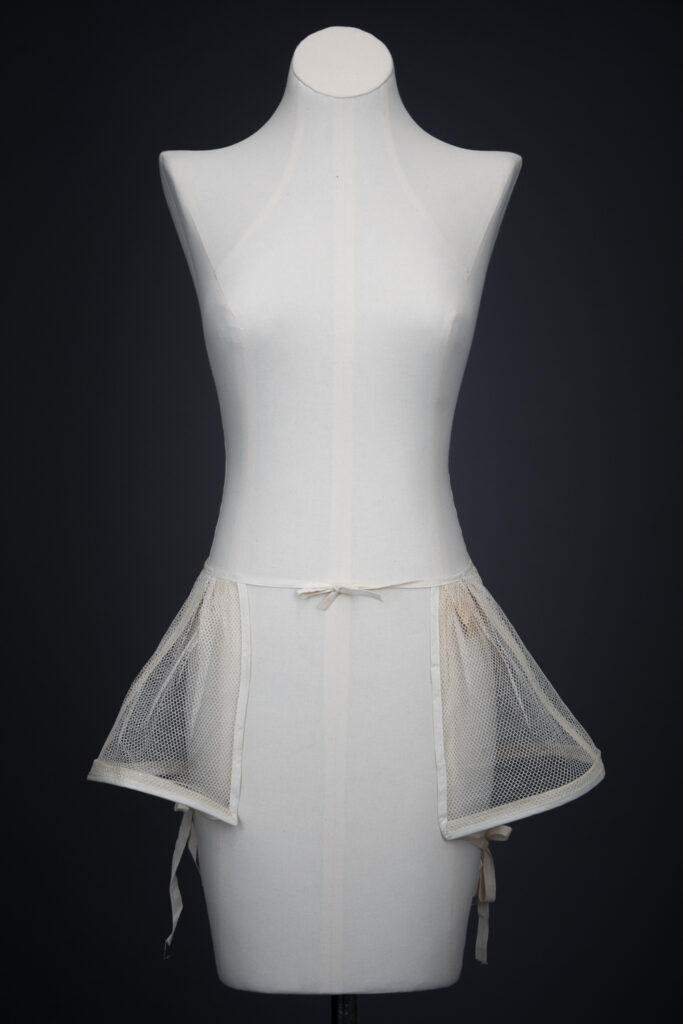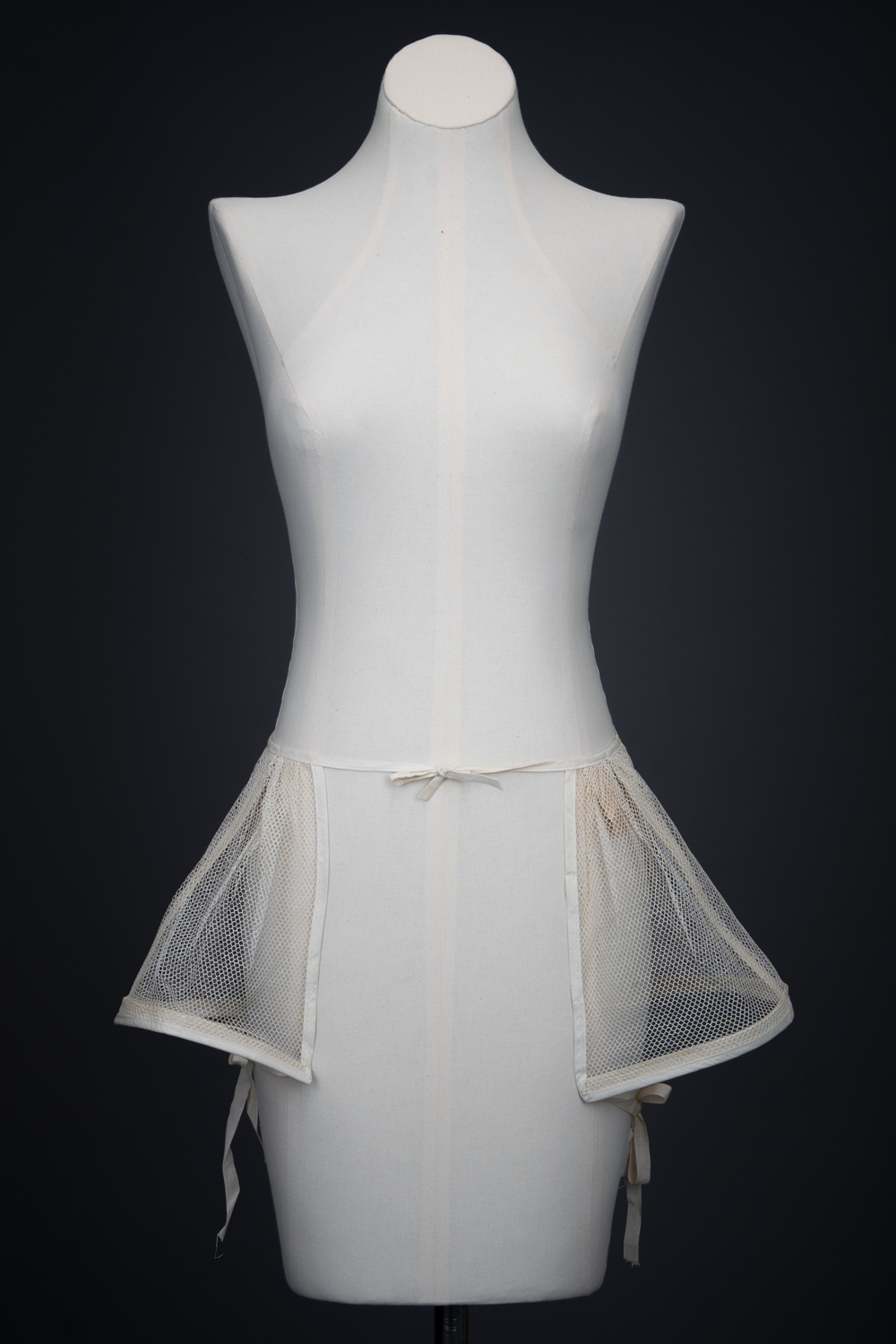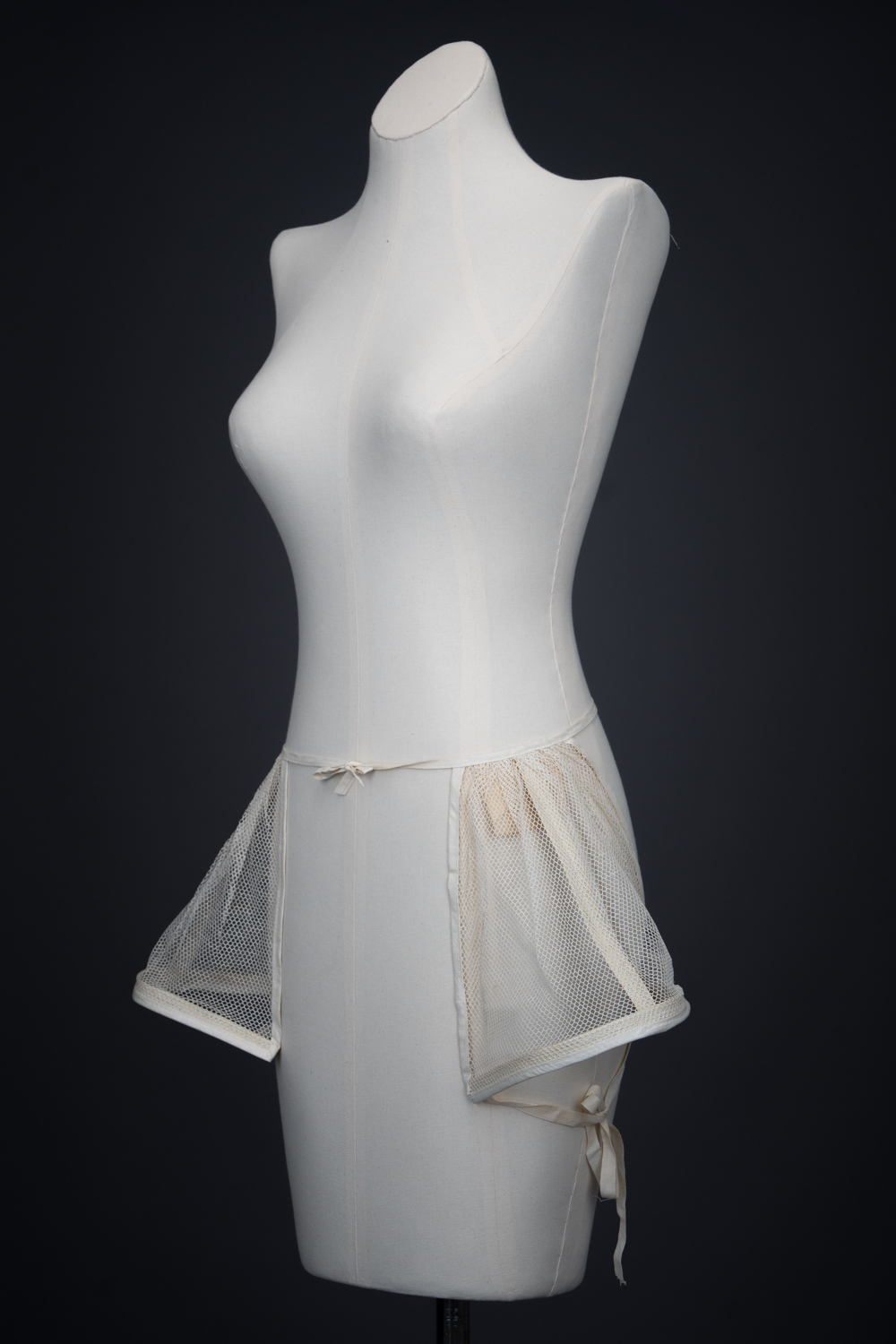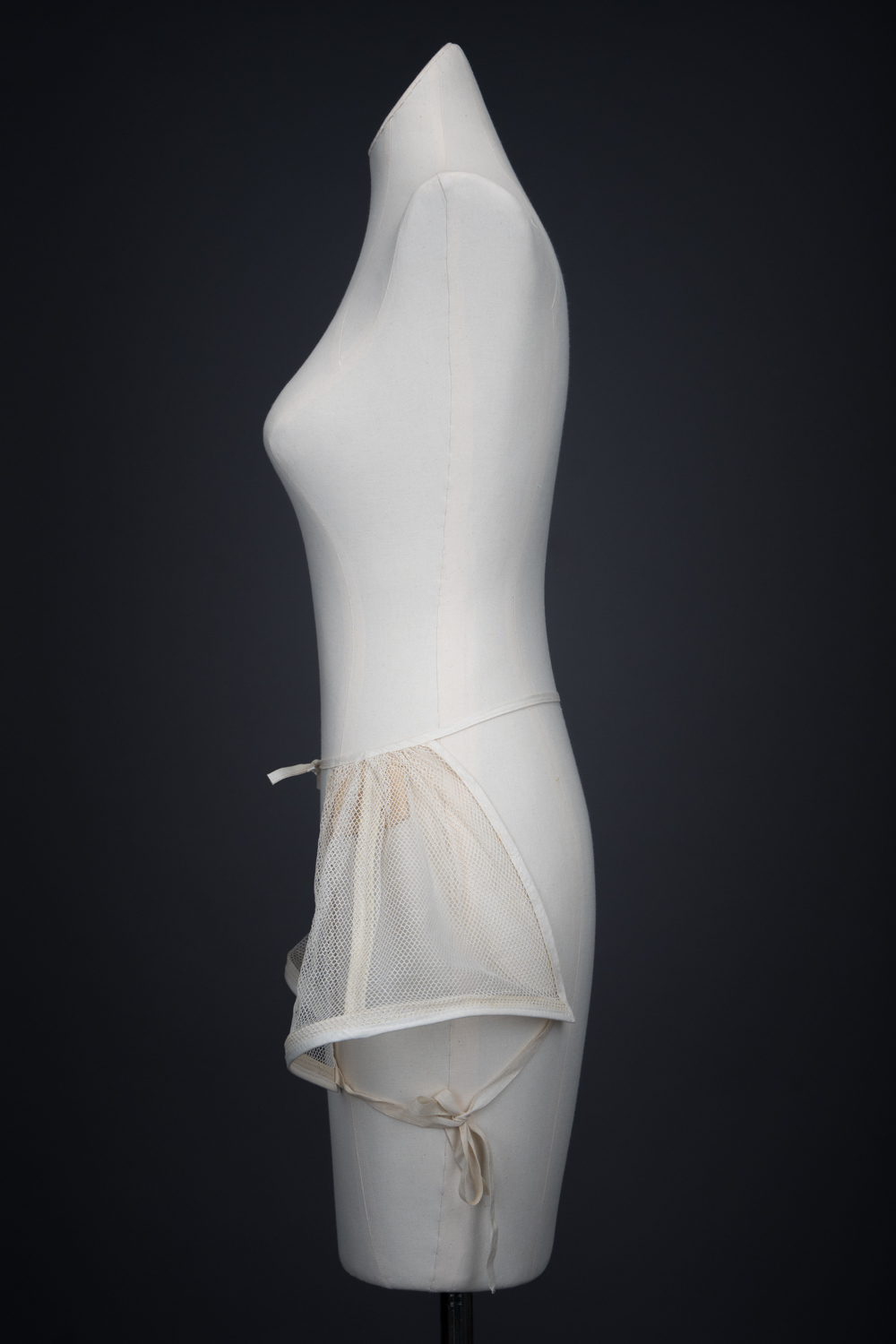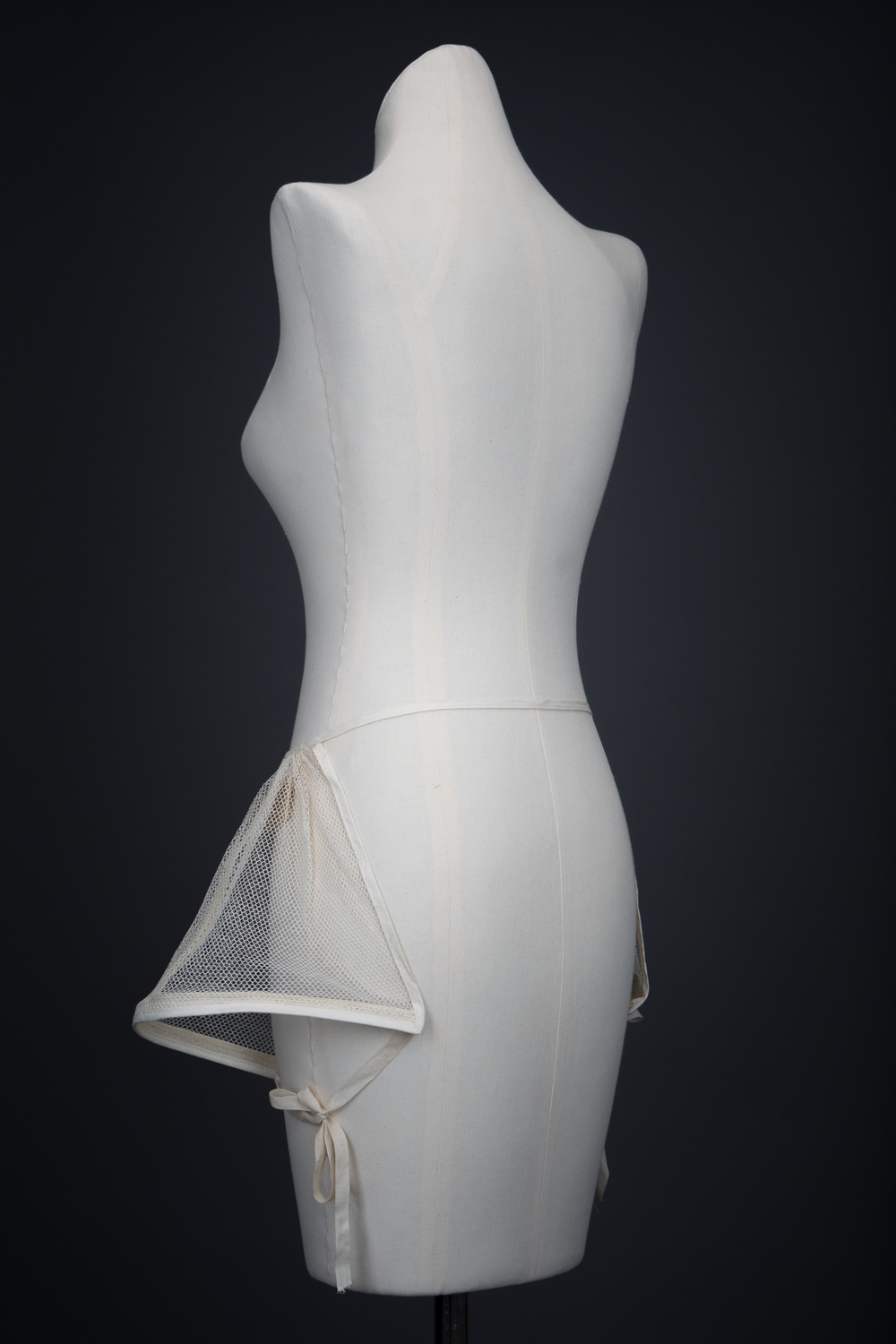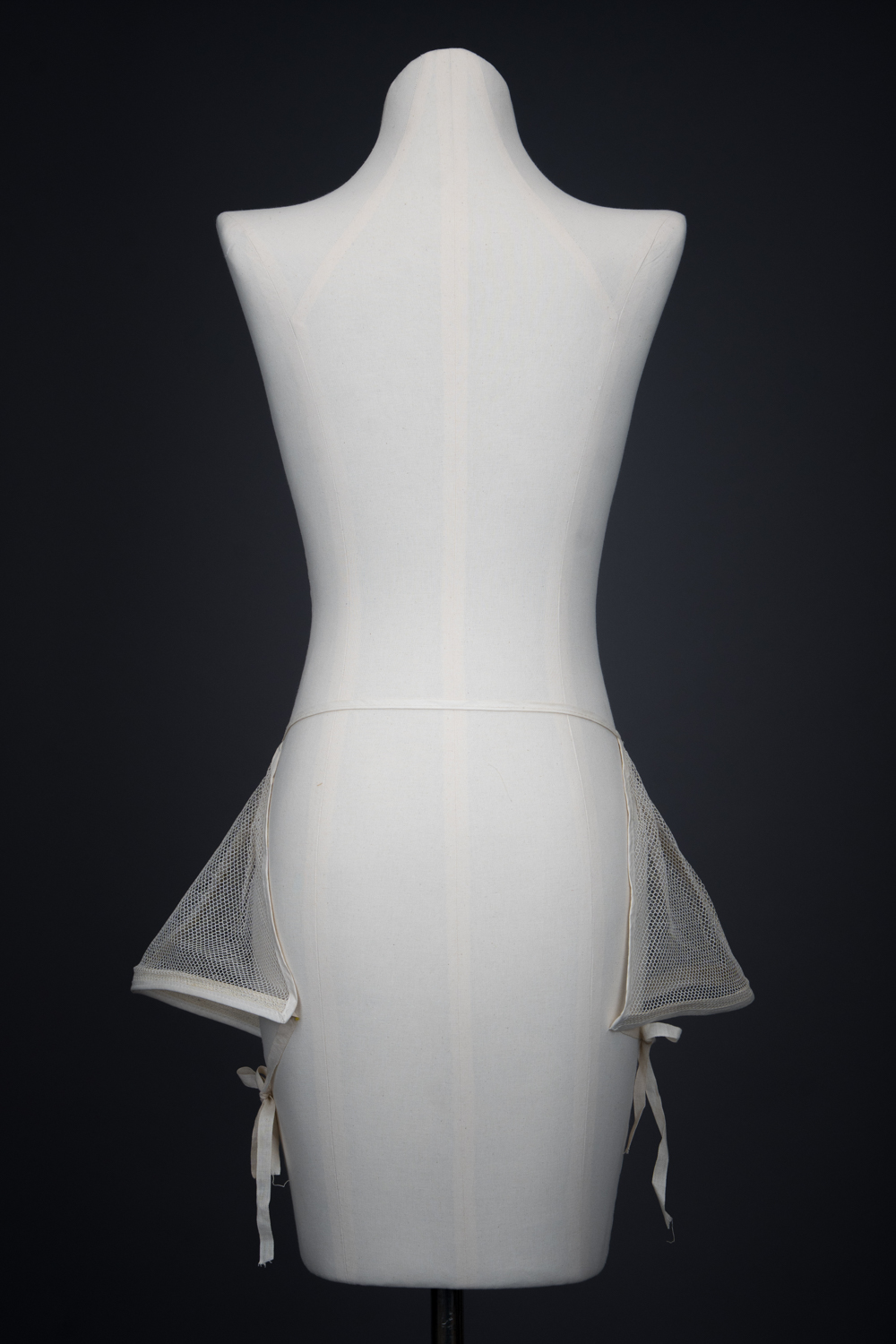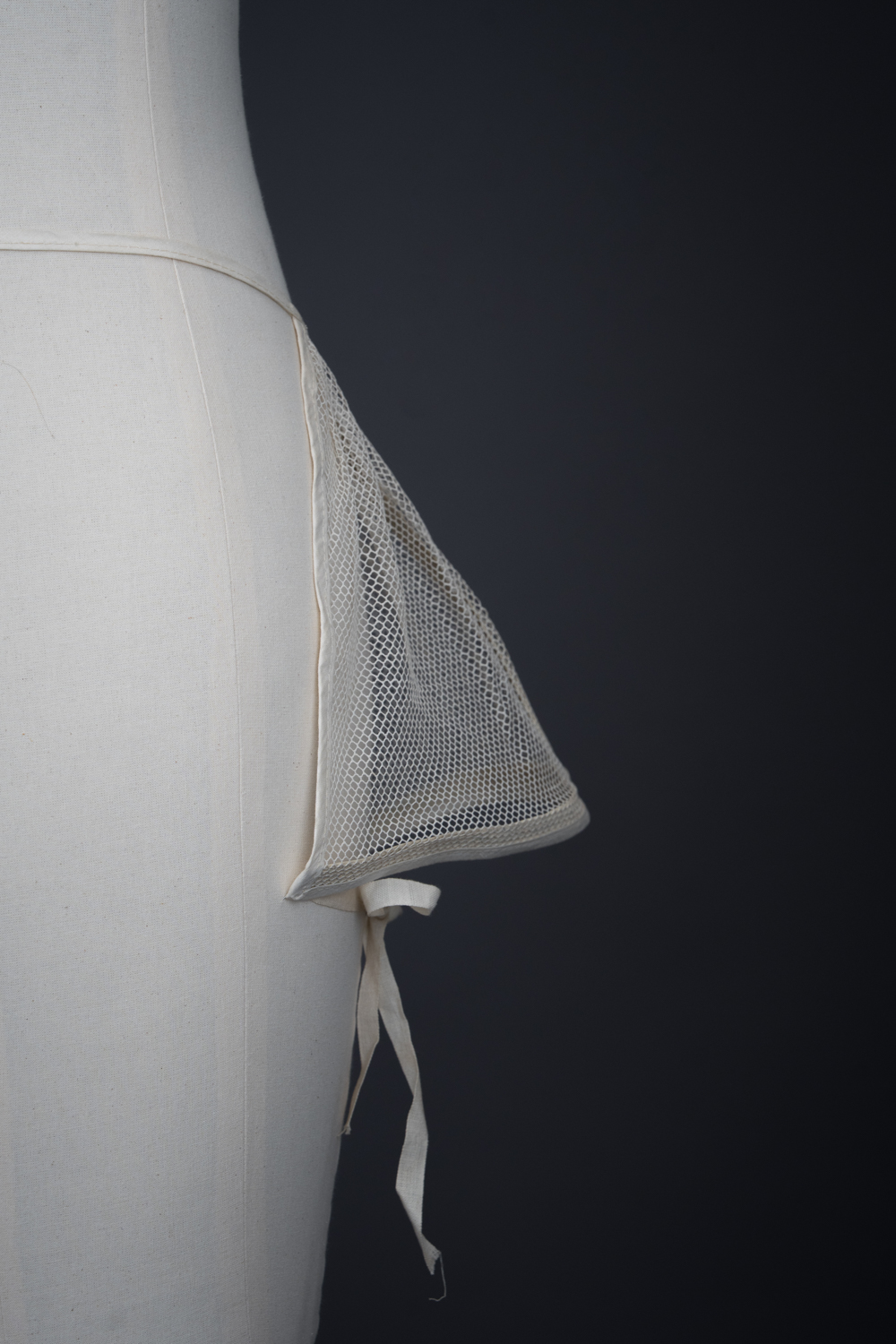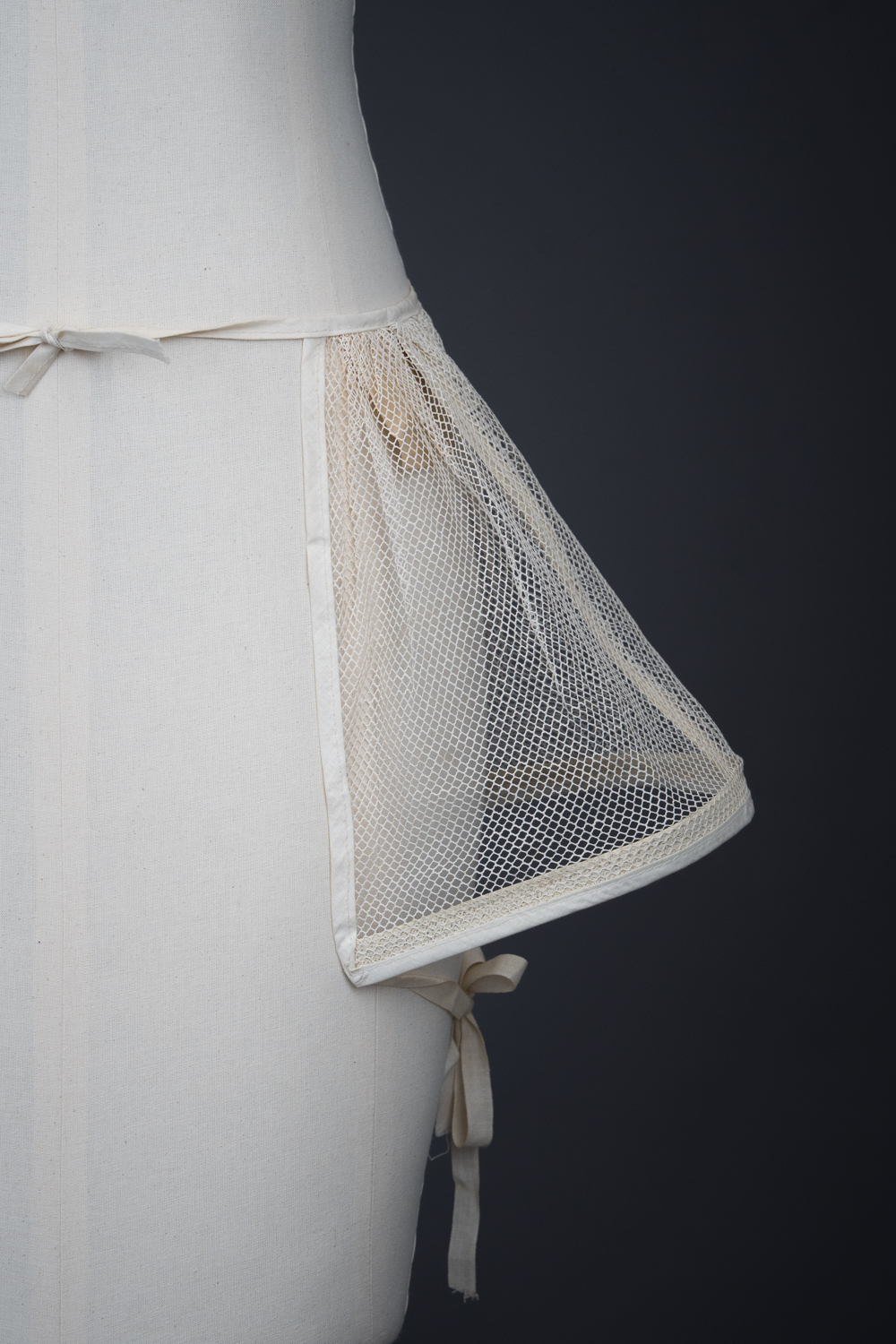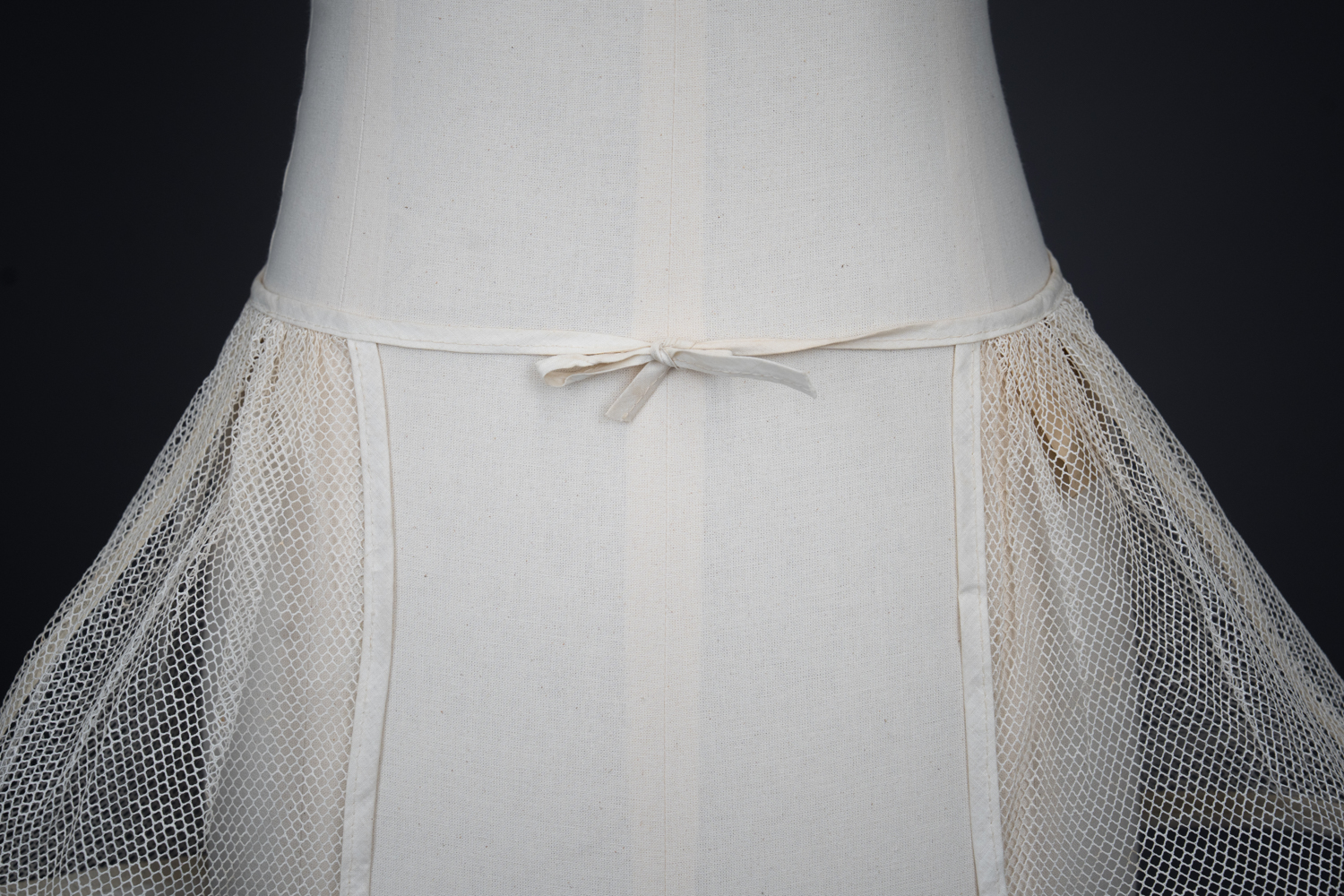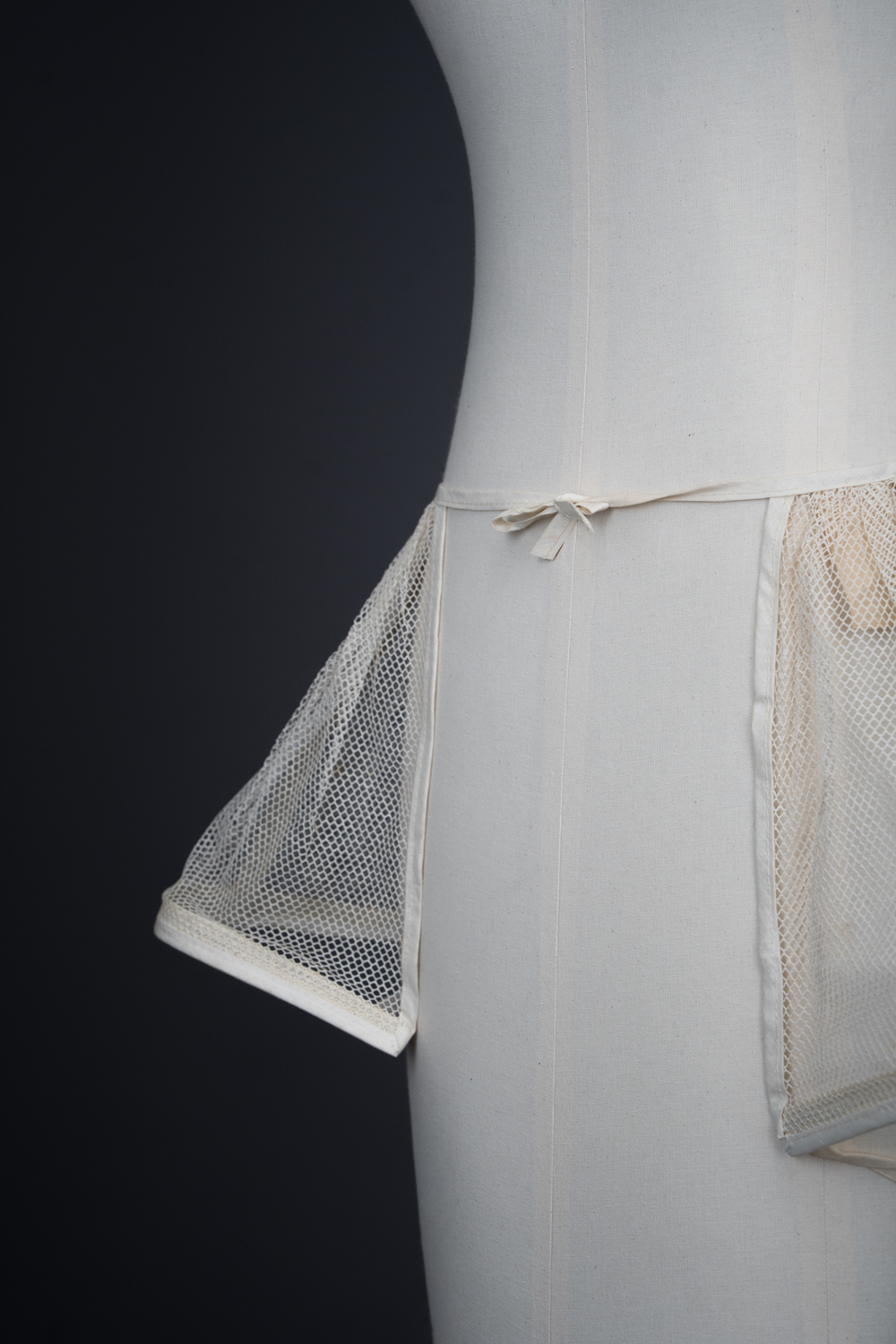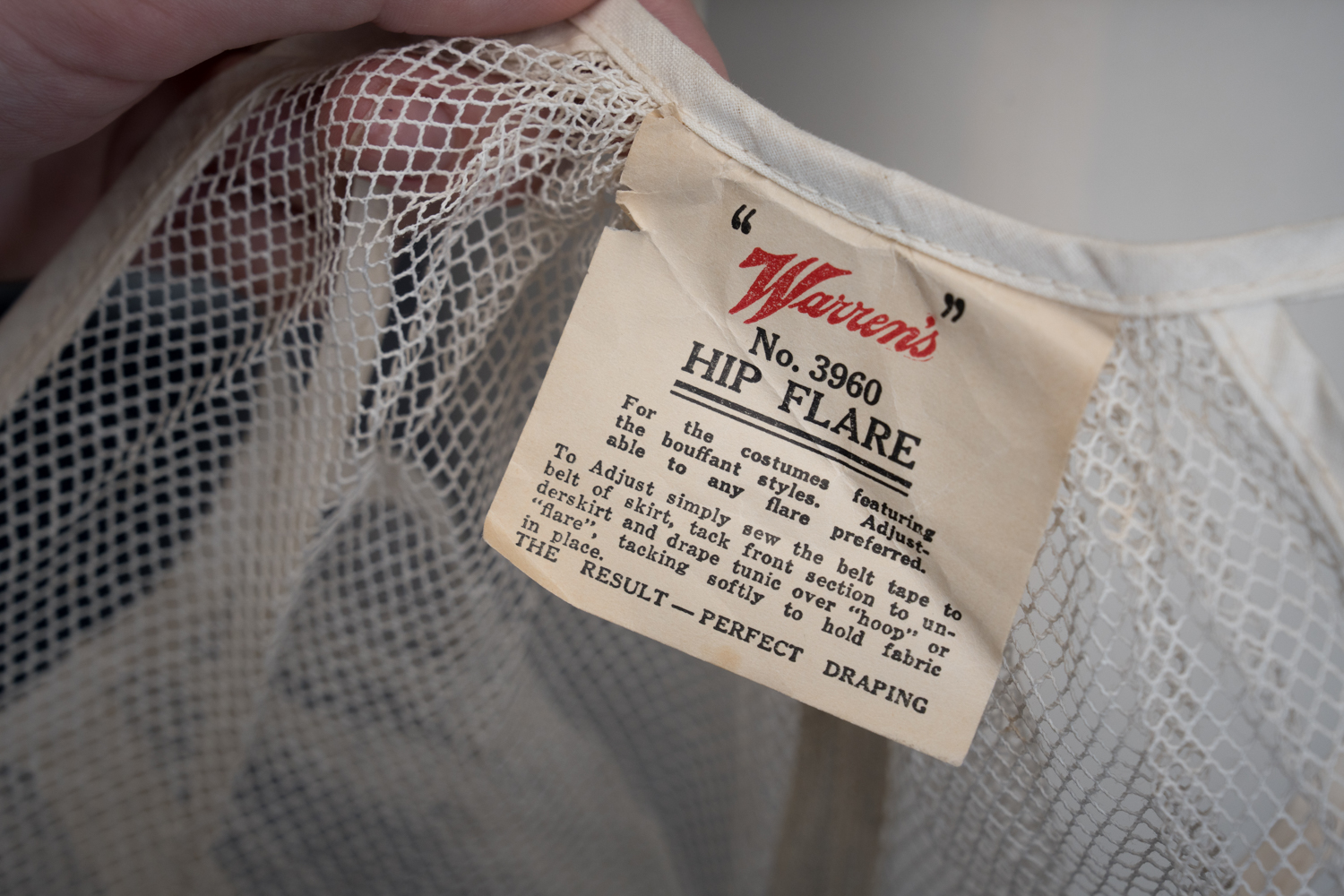'Hip Flare' Featherbone & Bobbinet Panniers By Warren
Date: c. 1920s
Origin: USA
Fabric: Cotton bobbinet, cotton twill
Brand: Warren
A set of panniers made of cotton twill tape, cotton bobbinet tulle, and ‘featherbone’. ‘Featherbone’ was a stiffening tape made of feather quills encased in a cotton twill casing, and was typically used to structure garments such as petticoats and corsets. It was sold as a pre-made tape, but the ‘Warren’ brand also sold a range of other products with the material, including these ‘Hip Flare’ panniers, which could be worn under skirts to help achieve the fashionable 1920s ‘Robe De Style’ silhouette.
The panniers are formed of cotton bobbinet tulle panels that have been gathered into a waistband. This waistband could either be tied closed, or stitched inside a skirt. The bottom of the panels are trimmed in featherbone, which gives the panels enough structure to protrude away from the body and to lift any outer skirts. There are additional cotton twill ties on the interior of these panels, to allow the wearer to adjust how far the pannier protrudes away from the body.
The Warren Featherbone Company began life in 1858 as a dry goods store, founded by Edward K. Warren. As the store proprietor, he quickly became familiar with complaints about the baleen bones which were commonly used to structure corsets and bodices, which were fragile and prone to breakage. This led to the innovation of using turkey feather quills as a replacement for baleen, and after some experimentation he produced a product known as the ‘featherbone’. The ‘Warren Featherbone Company’ officially opened in 1883 to manufacture this new product.
From the collection of Karolina Laskowska
Museum number: KL-2025-019
